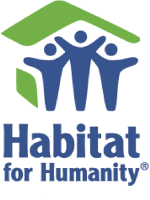
ResourceSpace has been instrumental in streamlining our process for finding, sharing and properly crediting images. It's taken out the stress of not knowing the source of our digital assets. It's become a cornerstone of our digital strategy.
Blog
19th August 2025

Regardless of the cause or the mission, every minute matters for charitable organisations.
With tight budgets and demanding timelines for delivering campaigns, efficient collaboration is key to ensuring your resources, time and effort make a difference, but this can be challenging—particularly when teams are working remotely and, in some cases, working in different countries.
Fortunately, there are a number of tools that make this a lot easier and that are, crucially, cost effective for a charity’s budget.
Collaboration within charities is challenging for a number of reasons, often because of the unique environments these organisations operate in. Charity teams can be spread across multiple geographic locations, with some staff working remotely in different time zones, while others might be working in challenging environments where internet access is unreliable. These issues all make coordination difficult, slowing down decision-making and making it harder to keep projects on track.
International charities might also have to deal with language barriers, where team members don’t all speak the same language fluently, leading to confusion about what’s required. This can result in duplicated work, inconsistent messaging or assets that are unsuitable for certain audiences. This was an issue for one of our customers, MCC, where the editors uploading images to ResourceSpace weren’t trained in content production and weren’t necessarily native English speakers.
Even when a charity is operating out of a single country, they may rely on a mix of full-time and part-time staff, as well as volunteers and external contractors, with each group having different access levels, communication styles and priorities.
For charities and non-profits, effective collaboration can be the difference between delivering a campaign on time and failing to achieve the results they’d hoped for.
With limited budgets and small teams these organisations cannot waste effort or duplicate work, and every hour saved on admin or searching for files can be reinvested into the charity’s core mission, whether that’s raising awareness, delivering services or working towards fundraising goals.
Seamless collaboration within and between charity teams avoids costly delays and ensures that messaging remains consistent across all channels. This is especially important when working with a mix of in-house staff and external partners, where communication gaps can lead to missed deadlines or outdated materials being used.
For organisations working with limited time and to a tight budget, the ability to create, share, update and approve assets centrally is crucial, meaning creative projects move forward faster, campaigns launch on time and resources are used as efficiently as possible—all of which supports the charity’s ability to make a greater impact.
Effective collaboration can be hard to achieve without the right tools in place, but for the non-profit sector the additional challenge of spending budgets wisely is particularly important. This can be difficult when so many of the best known software solutions come with hefty price tags and long contract periods.
However, there are some great tools out there that support collaboration during the digital asset lifecycle that also represent value for money to charities. In this blog we’re going to specifically look at:
Let’s take a look at them in closer detail.
The key to collaboration is having a single source of truth, and ResourceSpace offers exactly this for your digital assets.
Unlike traditional file storage solutions, a Digital Asset Management (DAM) system is a robust and reliable repository for all of your images, video and audio content, as well as related licensing and consent documentation.
READ MORE: Why ResourceSpace is perfect for... charities
There are a large number of DAM systems on the market, but ResourceSpace is particularly suited to the charity sector, and it’s already trusted by a huge number of non-profits. We’ve developed a number of key features that support charities in delivering their mission and working together effectively, while we’re also one of the most competitively priced solutions available—ideal for making the most of limited budgets.

ResourceSpace has been instrumental in streamlining our process for finding, sharing and properly crediting images. It's taken out the stress of not knowing the source of our digital assets. It's become a cornerstone of our digital strategy.
ResourceSpace’s free plan includes most key features. There are limits on cloud storage and user numbers but you’ll have unlimited time to evaluate the DAM before deciding on whether or not it’s the right system for your needs.
There are a lot of project management tools on the market, but we think Trello is ideal for charities and non-profits because of it’s easy-to-navigate visual layout, collaboration functionality and price.
The most expensive package is just $17.50 per user, per month, while the free workspace is also pretty comprehensive, with the ability to work on up to 10 kanban boards (with unlimited project cards) and unlimited storage—albeit with a cap of 10mb per file.
We’d recommend you eventually upgrade to a paid plan, but the free version offers an excellent evaluation product.
Trello alternatives worth considering:
Charities have to spend a lot of time creating campaign collateral which is both a skill and time-intensive activity.
The Adobe creative suite probably represents the best design software around, but it’s also expensive and requires a professional designer to get the most out of it. Although your organisation might have access to one (either in-house or a freelancer), unless you’re a large charity it’s unlikely you have a team at your disposal, which can mean even simple asset creation is a bottleneck for campaigns.
This is where a tool like Canva comes in, empowering marketing teams to create graphics with limited design skills, while also working on them together in a single location. You can even request editable templates from your professional design resource that you can reuse in the future. It’s also a far cheaper tool than the likes of Photoshop or InDesign.
READ MORE: The 5 best Adobe InDesign alternatives
Canva alternatives worth considering:
One of the biggest collaboration challenges charities face is ensuring all assets that are created and distributed are on-brand.
Effective brand management might not be top-of-mind for all non-profits, but it’s just as essential as it is for any company, with consistent messaging and visuals essential for communicating cohesive mission messaging.
Rightmarket and BrandStencil are two excellent systems for this, both of which integrate with ResourceSpace, allowing charity teams to instantly create on-brand customised artwork using your DAM media files.
Find out how the ResourceSpace-Rightmarket integration supported Age UK’s brand management.
Find out how the ResourceSpace-BrandStencil integration helped the British Red Cross communications team.

We can upload, share and store our best visual files across all our global channels for staff across the CARE world to instantly access – significantly improving our ability to respond in a coordinated manner, and at speed.
ResourceSpace is trusted by charities and non-profits all over the world—including the likes of Oxfam, Unicef and Fairtrade—to support the delivery of their mission and help tell the stories of the work they do.
To find out more about the DAM features and functionality that make charity digital asset collaboration simple, launch your free DAM portal here. There are two not-for-profit templates you can choose from to give you an idea of what your ResourceSpace instance could look like.
We also offer a free 30-minute demo, tailored to your specific requirements. Click below to book yours today.
#CollaborationTools
#CostEffectiveSolutions
#ProjectManagement
#ResourceSpaceTips
#BestPractice
#IndustryNews
#Communication
#TimeManagement